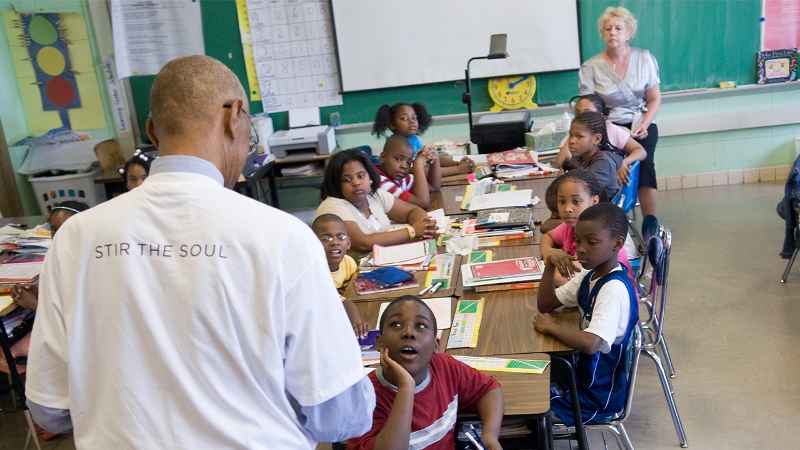The Best Primary Science Tuition Singapore for Effective Learning Methods
Wiki Article
Discover the Necessary Advantages of Comprehending Primary Scientific Research for Young Learners
The value of main science education for young students prolongs much past simple knowledge procurement; it offers as a basic pillar in establishing essential skills such as vital reasoning, analytic, and imagination. Involving with scientific ideas via inquiry-based and interactive tasks not only cultivates inquisitiveness but additionally lays the foundation for resistant, certain students.Enhancing Vital Believing Skills
Fostering critical thinking skills in young learners is essential for their cognitive advancement and future academic success. Vital reasoning allows children to analyze information, review proof, and make informed choices, which are essential skills in today's information-rich culture. By taking part in clinical inquiry, young students can enhance these abilities as they check out ideas through testing, thinking, and observation.In main science education, teachers can promote crucial reasoning by motivating trainees to ask concerns, develop hypotheses, and perform experiments. This hands-on method allows youngsters to practice problem-solving and establish sensible thinking skills. When students examine the buildings of materials or the principles of motion, they discover to assess their findings seriously and attract final thoughts based on evidence.
Furthermore, discussions and collective projects can promote crucial thinking by supplying possibilities for learners to express their thoughts, difficulty presumptions, and take into consideration varied perspectives. By creating an encouraging environment that values questions and reflection, teachers can support essential assuming skills that empower young students to become long-lasting learners and independent thinkers. Eventually, boosting these skills lays a durable structure for their future academic ventures and individual growth.
Fostering Curiosity and Expedition

Primary scientific research education gives a structured environment where young learners can discover numerous sensations through hands-on experiments and monitorings. By permitting them to connect with materials and participate in inquiry-based knowing, educators produce chances for youngsters to create hypotheses, examine their concepts, and draw final thoughts. Such experiences support a feeling of wonder and exhilaration about science.

Building Self-confidence in Problem Resolving
Structure confidence in problem-solving is a vital element of key scientific research education that empowers young learners to come close to challenges with durability and creativity - primary science tuition Singapore. They establish essential skills in essential thinking and analysis when children are motivated to involve with clinical principles with hands-on tasks and inquiry-based discovering. This process not just improves their understanding of scientific principles yet additionally fosters a feeling of ownership over their learningTo develop confidence, educators need to develop a supportive atmosphere where errors are deemed opportunities for growth as opposed to failings. This encourages trainees to take risks and check out numerous solutions to issues. By providing scaffolding and assistance, instructors can assist students browse complicated tasks, progressively enhancing their freedom in analytical situations.
Furthermore, joint discovering experiences, such as team projects or experiments, can even more boost trainees' self-confidence as they learn to articulate their thoughts and pay attention to others' point of views. These communications nurture social abilities and strengthen the idea that analytical is commonly a collective venture. Eventually, cultivating confidence in problem-solving prepares young students for future academic difficulties and outfits them with the tools required for long-lasting understanding.
Urging Imagination and Technology
In the world of key scientific research education and learning, encouraging imagination and development is crucial for cultivating a vibrant learning setting. By promoting a society where young learners can explore ideas and experiment openly, instructors assist pupils establish critical believing abilities and a passion for discovery. Imagination in scientific research urges youngsters to ask questions, devise hypotheses, and participate in hands-on tasks that stimulate their creativity.Incorporating flexible projects and inquiry-based knowing into the educational program enables pupils to express their distinct point of views and remedies. For instance, when entrusted with resolving a problem pertaining to their setting, pupils can brainstorm multiple techniques, causing innovative outcomes that showcase their originality. This not just grows their understanding of clinical concepts but additionally infuses a feeling of ownership her response over their knowing process.
In addition, creative science education supports cooperation amongst peers, as students often share ideas and improve each other's insights - primary science tuition Singapore. This joint spirit promotes not just development however additionally essential social skills. Hence, by focusing on imagination and innovation in primary science education, we encourage young students to believe critically, welcome difficulties, and envision possibilities, laying a solid structure for lifelong understanding and expedition
Planning For Future Knowing Obstacles
Young learners' capability to navigate future understanding difficulties rests on a strong foundation in main scientific research education. This fundamental understanding outfits students with vital believing abilities and an organized technique to analytical, important for dealing with intricate issues in an ever-evolving globe. Primary scientific research promotes inquiry-based understanding, encouraging trainees to ask concerns, explore hypotheses, and engage in hands-on experiments.As they establish these abilities, students come to be adept at assessing information, identifying patterns, and drawing informed verdicts. Such proficiencies are essential not just in scientific fields yet likewise in design, mathematics, and technology (STEM), where interdisciplinary expertise is progressively essential.
Furthermore, key scientific research education grows a sense of inquisitiveness and strength in young students, enabling them to watch difficulties as chances for development. As they experience and overcome barriers in their clinical expeditions, they construct self-confidence in their capacity to adjust and introduce.
Ultimately, a solid foundation in key scientific research not just prepares young learners for scholastic quests yet likewise outfits them with the tools essential for long-lasting discovering and versatility in a rapidly transforming global landscape. By investing in main scientific research education and learning, we are purchasing the future potential of our students.
Final Thought
Recognizing main scientific research is important for browse around this web-site young learners, as it fosters crucial reasoning, interest, and creativity. Eventually, the advantages of primary scientific research education prepare children for future scholastic searches and impart lifelong learning routines essential for thriving in an ever-evolving globe.The value of primary scientific research education and learning for young students extends far past simple knowledge acquisition; it serves as an essential column in developing necessary skills such as crucial thinking, problem-solving, and creative thinking. By developing a supportive setting that values query and reflection, educators can support critical believing skills that empower young learners to come to be long-lasting learners and independent thinkers. Thus, by prioritizing creativity and development in key scientific research education, we encourage young students to think critically, embrace challenges, and envision possibilities, laying a strong structure for lifelong discovering and exploration.
Young learners' capability to navigate future learning obstacles pivots on a strong foundation in main science education and learning.Comprehending primary science is critical for young learners, as it helpful site cultivates essential reasoning, interest, and creativity.
Report this wiki page